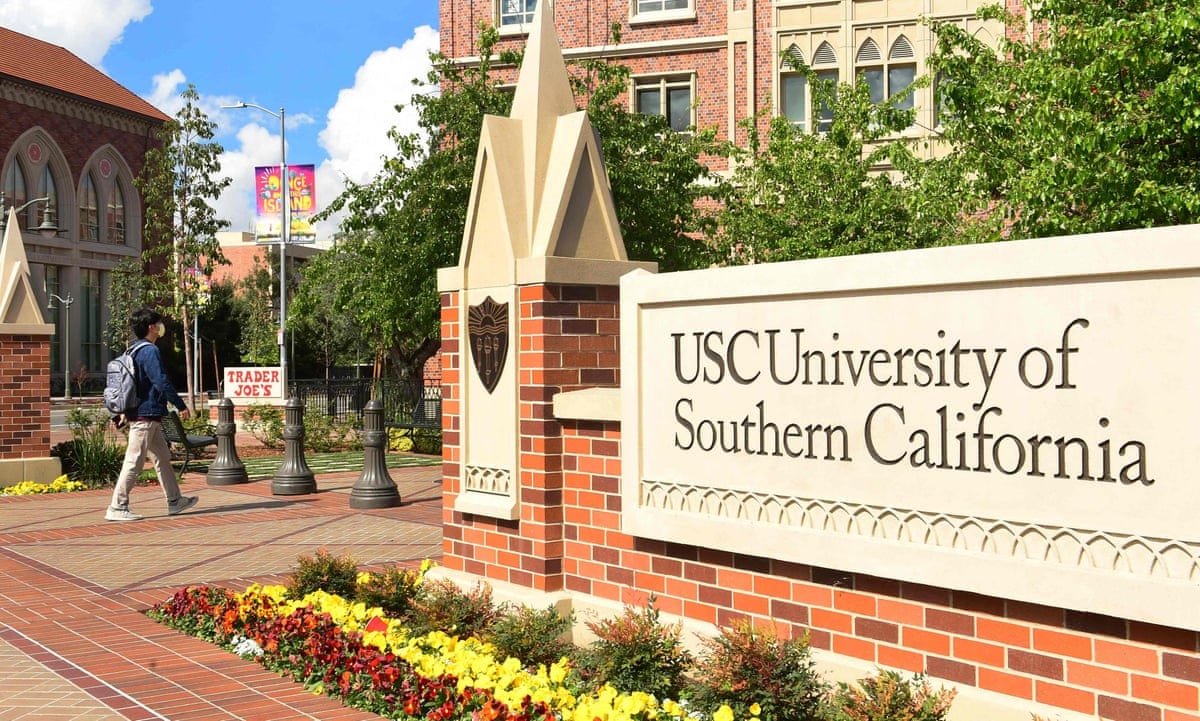USC Unconsensually Sold 89 Bodies to the U.S. Military to Train IDF Personnel
More than $860,000 was used to do cadaver trainings with the IDF, according to the USC student paper USCAnnenbergMedia’s review of seven years’ worth of contracts between the school and the Navy.
All done without the consent or dignity for the deceased person’s body that they were using.
The United States Navy filed a notice of intent near the end of 2017 to begin the purchase of human cadavers from the University of Southern California. All for the sole purpose of training trauma surgery for the IDF.
Since 2017, the Navy has cashed out USC for more than $860,000 for at least 89 “fresh cadaver bodies”. Of the 89, 32 were used for IDF training at the Los Angeles General Medical Center.
According to the report, one contract is still active, as the Navy has paid USC over half a million dollars, with an additional $225,000 worth of cadavers to be purchased by the Navy, which makes the total seven-year earnings approximately $1.1 million.
The Navy and IDF medics go through a facility called the Fresh Tissue Dissect Lab, which Los Angeles County and USC fund for “hands-on training on non-perfused cadaver bodies” to imitate battlefield injuries. These bodies are filled with artificial blood to simulate real-life patients, and this can only be achieved with fresh tissue.
These likely are either unclaimed bodies or bodies of individuals who volunteered themselves for medical research but were then unknowingly sold to the US military for IDF personnel training.
The Ethical Dilemma
The legalities around consent and cadavers differ from state to state. In California, the use of unclaimed bodies for scientific or educational purposes is permitted under the Health and Safety Codes.
Organ donation is highly regulated, but there is almost no regulation for the use of deceased anatomical bodies. Most schools operate with a blanket consent policy, and some states do not regulate it as much either.
There is no informed consent or knowledge of whether the deceased person would have consented to their body being used by the Navy or IDF for surgical teams. The worst part is that unclaimed bodies cannot consent at all, and even though the use of unclaimed bodies in medical education is considered to be unethical, that doesn’t mean it’s illegal. Although the University of California system operates only with voluntary “will body” programs, USC is one of the few that uses unclaimed bodies and defends the practice too.
The Pattern
This news may have surprised you, but it reminds me of a story I covered back in 2023, when ProPublica reported that famed UC Berkeley professor Tim White used a collection of human remains, many from indigenous peoples across the US, in his classroom.
They found that his collection included the remains of at least 95 people excavated from gravesites, many of them likely Native Americans from California. Their skeletal remains were left in a bin for this professor to showcase to his classroom, with no regard for respect, consent, or permission.
UC Berkeley is estimated to hold the remains of approximately 9,000 indigenous people in the Phoebe A. Hearst Museum of Anthropology on campus. These remains are often bundled in random closets or storage bins, not adequately cared for in any way. Harvard, UC Berkeley, and Indiana University hold some of the largest collections of indigenous remains.
USC Annenberg Media’s findings reveal a concerning situation: human bodies, often belonging to vulnerable individuals, are being treated as commodities without proper consent or respect. Using bodies that are unclaimed or acquired in a questionable way for trauma training, especially by foreign military like the IDF, brings up serious ethical questions that go beyond just legal issues.
USC and other institutions may be following the law, but there appears to be a lack of openness, transparency, and informed consent. This reveals a general lack of respect for the dead.
This isn’t a one-time thing. From training programs using bodies to how UC Berkeley & Harvard display and store indigenous remains, there’s a disturbing trend. Academic and governmental groups are using the dead for education or research.
These actions, though often legal, lead to the question: who decides how a body is treated after someone dies, and who gets respect? Institutions need to be responsible and have better ethical rules in place; this quiet misuse of bodies will likely continue.



You should check out the lax or complete lack of regulations for body PARTS. It’s unreal, unregulated pretty much, and unacceptable. One could google body parts and at the end of that trail, purchase same for your very own...
We do need cadavers to train up and coming healthcare providers, and the military puts people through medical school too. If they’re working on me, I’d like them to have had a thorough ana/phys lab somewhere along the way. It’s excellent training.
It IS an ethical issue which should be addressed at an institutional level. Good work! Less bias, keep going, don’t stop now!
(Incidentally have you read Mary Roach’s “Stiff”? Off beat, factual, about the life of cadavers after the owner is done with it...
Thanks for your work;-)
USC lost its moral compass a long, long time ago.